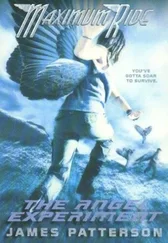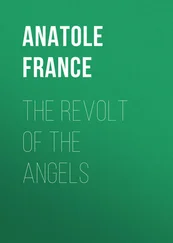Yukio Mishima - The Decay Of The Angel
Здесь есть возможность читать онлайн «Yukio Mishima - The Decay Of The Angel» весь текст электронной книги совершенно бесплатно (целиком полную версию без сокращений). В некоторых случаях можно слушать аудио, скачать через торрент в формате fb2 и присутствует краткое содержание. Год выпуска: 2010, Издательство: CCV Digital, Жанр: Старинная литература, на английском языке. Описание произведения, (предисловие) а так же отзывы посетителей доступны на портале библиотеки ЛибКат.
- Название:The Decay Of The Angel
- Автор:
- Издательство:CCV Digital
- Жанр:
- Год:2010
- ISBN:нет данных
- Рейтинг книги:5 / 5. Голосов: 1
-
Избранное:Добавить в избранное
- Отзывы:
-
Ваша оценка:
- 100
- 1
- 2
- 3
- 4
- 5
The Decay Of The Angel: краткое содержание, описание и аннотация
Предлагаем к чтению аннотацию, описание, краткое содержание или предисловие (зависит от того, что написал сам автор книги «The Decay Of The Angel»). Если вы не нашли необходимую информацию о книге — напишите в комментариях, мы постараемся отыскать её.
The Decay Of The Angel — читать онлайн бесплатно полную книгу (весь текст) целиком
Ниже представлен текст книги, разбитый по страницам. Система сохранения места последней прочитанной страницы, позволяет с удобством читать онлайн бесплатно книгу «The Decay Of The Angel», без необходимости каждый раз заново искать на чём Вы остановились. Поставьте закладку, и сможете в любой момент перейти на страницу, на которой закончили чтение.
Интервал:
Закладка:
Eternity does not come into being because I think I exist: Buddhist doctrine now seemed to Honda mathematically sound. The self was the order of beads determined by the self and therefore without validity.
These thoughts and the almost imperceptible decay of the flesh went together like the wheels of a cart. It was all right, even pleasant, to put the matter so.
In May or thereabouts he began to suffer from pains in the abdomen. They were very stubborn, and sometimes spread to the back. While he was still seeing Keiko, ailments inevitably came into the conversation. He would speak casually of some serious ailment, and with a great stir she would lay it out on the carving board. A stabbing sort of kindness competing with an amiable tendency to exaggerate, she would assign to it all the malignant medical terms she could think of, and he would be off to a hospital in a spirit of something like jest. Now that he was no longer seeing Keiko, he had to an astonishing degree lost this sort of enthusiastic disquiet. Pain such as he was able to endure he left to the ministrations of his masseuse. Even the thought of a doctor was wearing.
Indeed general debilitation and rhythmical attacks of pain brought new powers to think. His aging brain had lost all ability to concentrate, but now it returned, and pain even worked aggressively upon it, to bring certain vital faculties other than the purely rational to bear. At the age of eighty-one Honda attained to a wondrous and mysterious realm that had before been denied him. He knew now that a more comprehensive view of the world was to be had from physical depression than from intelligence, from a dull pain in the entrails than from reason, a loss of appetite than analysis. The addition of a single vague pain in the back to a world that had been to the clear eye of reason a minutely detailed structure, and cracks began to appear in the pillars and vaults, what had seemed like hard rock proved to be soft cork, what had seemed to have solid form turned to inchoate jelly.
Honda had by himself reached that honing of the senses, achieved by few in this world, to live death from within. When he looked back upon life from its far side other than as a journey over a flat surface, hoping that what had declined would revive, seeking to believe that pain was transient, clinging greedily to happiness as a thing of the moment, thinking that good fortune must be followed by bad, seeing in all the ups and downs and rises and falls the ground for his own prospects—then everything was in place, pulled tight, and the march to the end was in order. The boundary between man and object disappeared. The portentous ten-floor building in the American style and the fragile human beings who walked beneath it had as a condition that they would outlast Honda, but as a condition of equal importance that they would fall, like the crape myrtle so rudely cut down. Honda no longer had cause to sympathize, and he had lost the imagination that gives rise to sympathy. The loss had been easy, for he had always been short on imagination.
Reason still worked, but it was frozen. Beauty had become a phantom.
And he lost that greatest ill of the spirit, to will and to plan. In a sense that was the great liberation provided by pain.
Honda heard the chatter that envelops the world like gold dust. Conditional talk, noisily claiming permanent residence.
“Let’s go to a hot spring, Grandfather, when you’re feeling better. Would you like Yumoto, or would Ikaho be better?”
“Let’s have a drink when the contract is signed.”
“Let’s.”
“Is it true that now is a good time to get into the stock market?”
“When I grow up can I eat a whole box of cream puffs all by myself?”
“Let’s go to Europe next year.”
“In three years I’ll be able to buy a boat from my savings.”
“I can’t die till he grows up.”
“I’ll get my retirement pay and we’ll build an apartment house and have a quiet old age.”
“Day after tomorrow at three? I don’t know whether I can make it or not. No, you have to believe me, I really don’t. Suppose we say you’ll be there if you feel like it.”
“We’ll have to get a new air-conditioner next year.”
“It’s a real problem. Can’t we at least cut down on entertainment expenses next year?”
“They say you can have as much tobacco and liquor as you want when you’re twenty.”
“Thank you. It’s very kind of you. Next Tuesday evening at six.”
“That’s just the point. That’s the way he is. Just wait two or three days and he’ll be around with a sheepish look on his face to apologize.”
“Good-bye. See you tomorrow.”
Foxes all, walking the path of foxes. The hunter had only to wait in the thicket.
It seemed to Honda that he was a fox with the eyes of a hunter, walking the path of the foxes even though he knew that he would be caught.
Summer and ripeness were approaching.
It was mid-July when Honda finally stirred himself to make an appointment at the Cancer Research Institute.
On the day before the appointment he had one of his rare looks at television. It was a sunny afternoon, the summer rains having just lifted. There was a shot of a swimming pool. In the unpleasantly artificial blue of the water, young people were splashing and jumping and swimming.
The faint, fleeting scent of beautiful flesh!
To deny the flesh, to see them as skeletons disporting themselves by a pool in the summer sun, was ordinary, dull. Anyone could do it. Anyone could deny life, see through to the bones beneath the youthful surface. The most mediocre of persons could do it.
What revenge could there be in that? Honda would end his life without having known the feelings of the owner of beautiful flesh. If for a single month he could live in it! He should have had a try. What must it be like, to wear such a beautiful covering? To see people fall down before it. When admiration passed the gentle and docile and became lunatic worship, it would become torment for the possessor. In the delirium and the torment were true holiness. What Honda had missed had been the dark, narrow path through the flesh to holiness. To travel it was of course the privilege of few.
Tomorrow he would have a thorough examination. He did not know what the results would be. He should at least be clean. He had the bath drawn before dinner.
The middle-aged housekeeper, formerly a nurse, whom he had employed without consulting Tōru, was an unfortunate woman, twice widowed, but she was a model of kindness and devotion. Honda had been thinking that he must provide for her in his will. She even saw him to the bathtub lest he fall, and left behind the frays of her concern like cobwebs in the dressing room. Honda did not like being seen naked by a woman. He took off his bathrobe before the steaming mirror. He looked at himself. His ribs were in sharp relief, his stomach sagged, and in its shadow hung a shriveled white bean; and so down to whitish shins from which the flesh seemed to have been stripped away. The knees were like swellings. How many years of self-deception would it take to find rejuvenation in this ugliness? But he was able to console himself with a long smile of commiseration at the thought of how much worse it would be if he had been beautiful in the first place.
The examination took a week. He went to the hospital for the results.
“You must come in immediately. The sooner you come in the better.” So it had happened. “We didn’t catch a trace of it all those other times, and it seems unfair to have it jump out all of a sudden without warning. A person can’t be too careful.” The doctor smiled a beatific smile, as if reproving Honda for some dereliction. “But there seems to be no more than a benign growth on the pancreas. All we have to do is cut it away.”
Читать дальшеИнтервал:
Закладка:
Похожие книги на «The Decay Of The Angel»
Представляем Вашему вниманию похожие книги на «The Decay Of The Angel» списком для выбора. Мы отобрали схожую по названию и смыслу литературу в надежде предоставить читателям больше вариантов отыскать новые, интересные, ещё непрочитанные произведения.
Обсуждение, отзывы о книге «The Decay Of The Angel» и просто собственные мнения читателей. Оставьте ваши комментарии, напишите, что Вы думаете о произведении, его смысле или главных героях. Укажите что конкретно понравилось, а что нет, и почему Вы так считаете.











